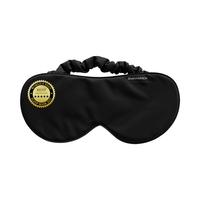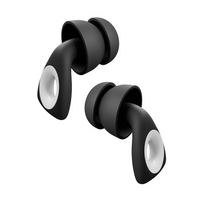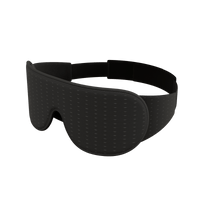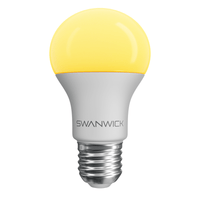Imagine this: You're standing in front of a rack of sunglasses and you're looking at stickers that say UV Protection and others saying Polarized. You suspect polarized lenses are cool for some reason. But, you wonder if the extra cost of polarized sunglasses is worth it.
Your internal monologue might go a little something like this:
YOU: "Do I really need both? Will polarization offer added protection for all that extra cash?"
THE ☀️ SUN: "Totally, friend. Don't you know how harmful UV light is? Don't you know I shine bright sunlight on all the reflective surfaces? Can't be too careful."
YOU: "Please Sun, have mercy! Polarized lenses cost way more! Can't you cut me some slack?"
THE ☀️ SUN: "No can do! Time for you to overthink the next pair of sunglasses you'll purchase! HAHAHAHA!!"
🤦♂️ Wow. Talk about a monster.

What's the difference?
No really. What’s the difference between polarized lenses and UV protection, you ask? What's the big deal? And why don't more companies of good reputation offer both for my high glare situations and my desired avoidance of UV light?
Depending on what you need your sunglasses for, the impact of polarized lenses vs UV lenses can be astronomical.
Not to mention how essential both are throughout the year (It’s true, the sun shines all year long, not only in the summer). Even when it seems the sun evades you in winter, it still emits harmful UV rays and glare that can damage your eyes.
With that said, let’s see how impactful each type of lens can be, shall we?

UV Protection Sunglasses vs. Polarized Sunglasses
It’s simple really. While UV-rated lenses shield your eyes from the harmful rays on sunny days, whereas polarized sunglasses reduce glare that causes discomfort.
What’s more, having ultraviolet protection is crucial to ensure healthy peepers, whereas polarization is more of a preference (assuming you don't want blinding glare to penetrate your eyes).
Polarized Lenses
But even though polarized shades offer wondrous benefits, it doesn’t offer full UV protection and vice versa. (Oh, snap!? Not so simple.)
Yeah, I recommend you continue reading…
If you’re thinking, “Nope! I’m convinced. Skip it and just gimme a pair of Swannies Sunnies: our new UV rated and polarized sunglasses, already!” Get em’, here. And remember to keep your new blue light sunglasses looking brand-spanking new, like this.
For those that don’t want to skip it (because of FOMO!). 👇
Advantages of UV Protection Sunglasses
UV rays can damage your eye's lens and cornea. This increases the risk of conditions like macular degeneration and cataracts. That’s why a proactive approach is necessary to avoid these common eye problems.
If all it takes is wearing UV sunglasses on your face, then there really isn’t more I can tell you. Except, reveal the amazing benefits.

The Benefits of UV Protection Sunglasses
- An effective blocker of harmful UV rays (but you know you shouldn’t stop at eye protection though, learn your ABC’s of UV radiation for complete UV protection)
- Protection against skin cancer (the delicate skin around your eyes is more likely to be at risk for carcinoma)
- Decreased possibility of eye conditions (macular degeneration, cataracts, glaucoma, pterygium, and photokeratitis)
- Reduced headaches and migraines
It’s safe to say that UV sunglasses act like sunscreen for your eyes, but it's not effective against light beams (aka extremely bright-scattered-reflective-peeper-damaging-light-beams).
So, what? One can’t be without the other?
Maybe… let’s see...
Now that we’ve covered one side of the story, let’s look at how polarization can be applied.
Advantages of Polarized Sunglasses
Typically, light bounces off angles of uneven surfaces and especially so on smooth, flat, and highly reflective surfaces - mirrors, metal, water, snow... dad’s bald head. Enter: Polarized lenses.
Now, it's no secret that polarized sunglasses frequently come with a much higher price tag. But, do they strangely tinted lenses come with an equivalent amount of benefits? If so, what are they?

Polarized lenses work by offering:
- Clearer vision in bright light
- Minimal color distortion
- Increased contrast
- Reduced glare and reflection
- Reduced eye strain
- Reduced headaches and migraines
- Increased durability
Phew! What a relief it must be going about your outdoor adventures sporting superhuman vision! (Well, almost!).
But, do polarized lenses block anything?
As a matter of fact, yes they do. Polarized lenses block glare. Okay, what's glare? Glare is dominantly horizontal light. So, using fancy hocus pocus wizardry, they block horizontal light allowing only, or mostly vertical light through. Which, in the opinion of this author, makes polarized sunglasses pretty darn cool.
Now, the answer to the question of, "Should I wear polarized sunglasses or not?" has been answered. But the question remains: Should you wear polarized lenses while at the same time getting UV shielding?
Hell to the yes! 👍 But, what's a body to do when they go looking for this perfect concoction of features? And is there a missing feature we haven't yet discussed?
Get you Sunglasses that can do all three. (Wait... all three?)
In a world where you can have it all, doesn't make sense for you to get sunglasses that have all the perks? I'm not just talking about polarized lenses and UV shielding.
Blue Light Protection, Too.
I'm also talking about the ability to protect your eyes from blue light coming off of cell phones, LCD displays, and other digital screens.
Glasses that reduce glare, and offer supreme visual clarity. (And, ideally glasses that have several peer reviewed studies under their belts.) With digital eye strain a greater danger than ever, wearing sunglasses that have this added bonus is starting to become a must.
The thing with our new Swanwick Sunnies, the ultimate answer for your outdoor activities, is that you can have all these bells and whistles in the same thing... the same pair of swanky glasses.
You wanted polarized lenses? You've got polarized lenses.
You want UV-rated? You got it!
You want protection from blue light from the screen of your choice to reduce eye strain? It's yours!
You want visual comfort for all your time outdoors on a sunny day and you don't want to have to wear three different pairs of shades?
Well then, my friend, it looks like the perfect pair of sunglasses really does exist.
In Summary
Vision happens in a funny way. Your eyeballs perceive light bouncing of objects. Because objects come in all shapes and sizes like rocks, mothers-in-law, and mountains-covered-in-trees, reflected light is never going in just one direction. It's the horizontal light that causes glare. Polarized sunglasses work by reducing glare by eliminating horizontal beams.
Do you need them? No. You don't. You need food, water and shelter.
Will a pair of polarized sunglasses make you more comfortable? You bet.
So, what are the best polarized sunglasses? Well, ours of course. We made them that way, so we ought to know. They've got it all:
- UV Protection
- Polarization
- Blue Light Blocking
What's left to think about?
Get your Swannies Polarized Sunglasses with UV and Blue Light Protection and get back to enjoying your day.
Swanwick Blue Light Filter Glasses you might also be interested in:
DO YOU WANT TO PROTECT YOUR EYES FROM UV RADIATION?
Start with getting your own pair of Swannies Sunnies now.
 100% Silk Sleep Mask
$59.99 USD
100% Silk Sleep Mask
$59.99 USD
 Reusable Earplugs Kit
$24.99 USD
Reusable Earplugs Kit
$24.99 USD
 Peak Performance Sleep Mask
$34.99 USD
Peak Performance Sleep Mask
$34.99 USD
 Eyewear Care Kit
$14.99 USD
Eyewear Care Kit
$14.99 USD
 Anti-Blue Light LED Bulb - Amber
$29.99 USD
Anti-Blue Light LED Bulb - Amber
$29.99 USD
 Anti-Blue Light LED Bulb - Red
$29.99 USD
Anti-Blue Light LED Bulb - Red
$29.99 USD













1 Response
Brenetta Glass
October 18, 2021
Thanks, now the difference between UV & polarized sunglasses is clear.
Leave a comment
Comments will be approved before showing up.